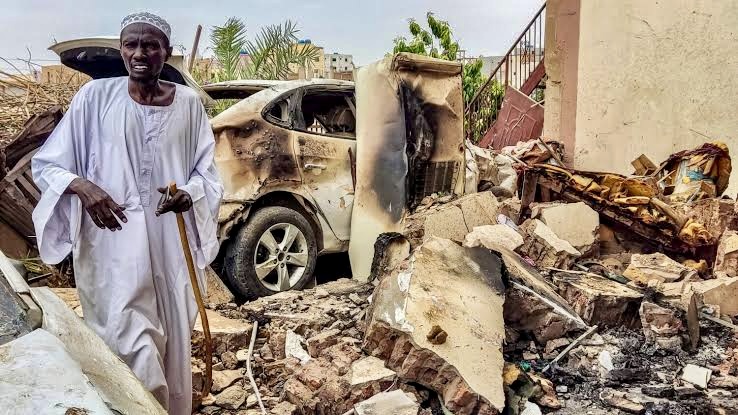
Faith Nyasuguta
Half a year into the conflict, Sudan’s brutal war persists, resulting in widespread suffering, loss of life, displacement of millions, and even casualties in regions distant from the battle lines.
“The war continues mercilessly. We wake up every day hoping that a solution or agreement or ceasefire will be reached. Unfortunately, this hope fades day by day,” decries Rashid Mohamed Ahmed, resident of Omdourman.
Over 9,000 deaths, 5.6 million displaced people and refugees, cholera and deindustrialisation, the war that commenced between general Al-Burhane and Mohamed Hamdane Daglo has brought Sudan to its knees and ravaged its capital Khartoum.
As the conflict drags on, Sudanese optimism for a resolution is diminishing, and fear is steadily increasing among the population.
“The past six months were a bitter period. We are scared day and night. Scared of the bombs and bullets,” shares Mona Mohamed Taher, another resident of Omdourman.
Throughout Sudan, the delicate healthcare system is under strain, with overcrowded emergency rooms and the closure of numerous hospitals.
The Global Head of Doctors Without Borders asserts that Sudan’s crisis represents a profound breakdown of humanity, characterized by the inability of warring factions to safeguard civilians and ensure crucial humanitarian aid can reach those in need.
“Some charity organisations are helping, but we still need health aid, blankets, bedsheets, and also there is water and medicine shortage. In general, there is shortage in healthcare services,” pleads Mounira El Ser, volunteer in the al-Wahda school camp?
With no end to the war in sight, NGOs are calling for a substantial increase in efforts to provide humanitarian aid and for people of Sudan to be allowed unhindered access to medical aid.
In July, the UK imposed fresh sanctions on businesses fuelling the devastating conflict in Sudan by providing funding and arms to the warring militias. These sanctions were to ensure that any assets held in the UK by these conglomerates and companies would be frozen.
These strict measures on companies controlled by the Sudanese Armed Forces (SAF) and the Rapid Support Forces (RSF) were to limit their financial freedom by preventing UK citizens, companies and banks from dealing with them and put pressure on the parties to engage in the peace process.
About three months of violence in Sudan had resulted in 25 million people in need of humanitarian assistance, over 2.2 million internally displaced and 682,000 people estimated to have fled to neighboring countries. In Darfur, there are also reports of increasing ethnic violence.
RELATED:




